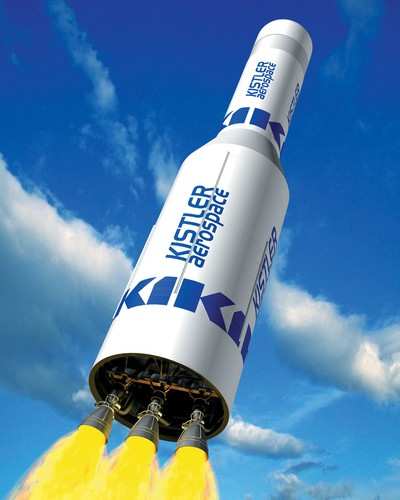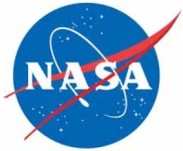But Company Has Option To Resubmit Bid
As expected, NASA has terminated its contract with Rocketplane
Kistler to develop an inexpensive means of transporting cargo to
the International Space Station, under the Commercial Orbital
Transportation System (COTS) program.

MSNBC reports the space agency sent formal notice to the
Oklahoma-based company's offices Thursday, just over one month
after NASA put Rocketplane Kistler on notice it was in danger of
losing out on further funding under the agreement.
As ANN reported, Rocketplane
Kistler missed two recent milestones necessary to maintain COTS
funding, including failure to raise $500 million in private
investment by May. As a result, RpK was forced to stop further
development work on its K-1 launch vehicle.
To date, Rocketplane Kistler has received just over $32 million,
out of around $207 million in total funds the company was set to
receive throughout fulfillment of the COTS agreement. The company
won't have to pay that money back... but it won't see another dime
from NASA, either, at least in the near-future.
With RpK out of the running, the door has been opened for other
companies to submit bids. Potential bidders cited by MSNBC include
Transformational Space and PlanetSpace, as well as SpaceDev,
Spacehab and Constellation Systems International. SpaceX -- which
won the balance of the original $500 million COTS bid, and has so
far reached all its milestones -- could also bid for the work
forfeited by Rocketplane Kistler.
NASA's Alan Lindenmoyer says RpK could also rebid for the work,
if it manages to work out the bugs... noting the company has the
option of continuing work on its K-1 on spec.
"We would welcome a new proposal from them to be evaluated
against other proposals from industry," said Lindenmoyer, manager
of the Commercial Crew and Cargo Program Office at NASA's Johnson
Space Center.
The space agency is under the gun to find a new method of
transporting cargo to the ISS, as the agency faces a hard 2010
deadline to retire its aging fleet of space shuttles.
If a private party is unable to take over the job by then, NASA
will be forced to rely on Russia's Soyuz spacecraft (and the
Progress cargo ship variant) to send supplies and manpower to the
station, until the Orion Crew Exploration Vehicle comes online in
2014.
 While NASA would prefer
to have a COTS vehicle online by then, Lindenmoyer said, it won't
be a requirement for late entrants to the bidding. "We have our
need in that time frame," he said. "It's not a requirement."
While NASA would prefer
to have a COTS vehicle online by then, Lindenmoyer said, it won't
be a requirement for late entrants to the bidding. "We have our
need in that time frame," he said. "It's not a requirement."
NASA plans to post the requirements for the second round of
bidding Monday, with proposals due within 30 days.
Lindenmoyer stressed the falling out with RpK should not be
taken as a failure of the COTS program.
"This is not a traditional NASA program, so therefore,
recognizing that level of risk that we are undertaking, and the
potential payoff, it is not a surprise. ... We had a quantifiable
risk, and it was mitigated by the fact that we were able to make a
decision early on in the program," he said.
Formed by the pairing of Rocketplane Limited, Inc. and Kistler
Aerospace Corporation in March 2006, Rocketplane Kistler has since
split into two units. Rocketplane Kistler will continue its focus
on the K-1, while Rocketplane Global will work on a suborbital
spaceplane, similar to the original Lear-based Rocketplane.
 ANN's Daily Aero-Linx (12.12.25)
ANN's Daily Aero-Linx (12.12.25) ANN's Daily Aero-Term (12.12.25): Land And Hold Short Operations
ANN's Daily Aero-Term (12.12.25): Land And Hold Short Operations ANN FAQ: How Do I Become A News Spy?
ANN FAQ: How Do I Become A News Spy? NTSB Final Report: Cirrus Design Corp SF50
NTSB Final Report: Cirrus Design Corp SF50 Airborne 12.08.25: Samaritans Purse Hijack, FAA Med Relief, China Rocket Fail
Airborne 12.08.25: Samaritans Purse Hijack, FAA Med Relief, China Rocket Fail




